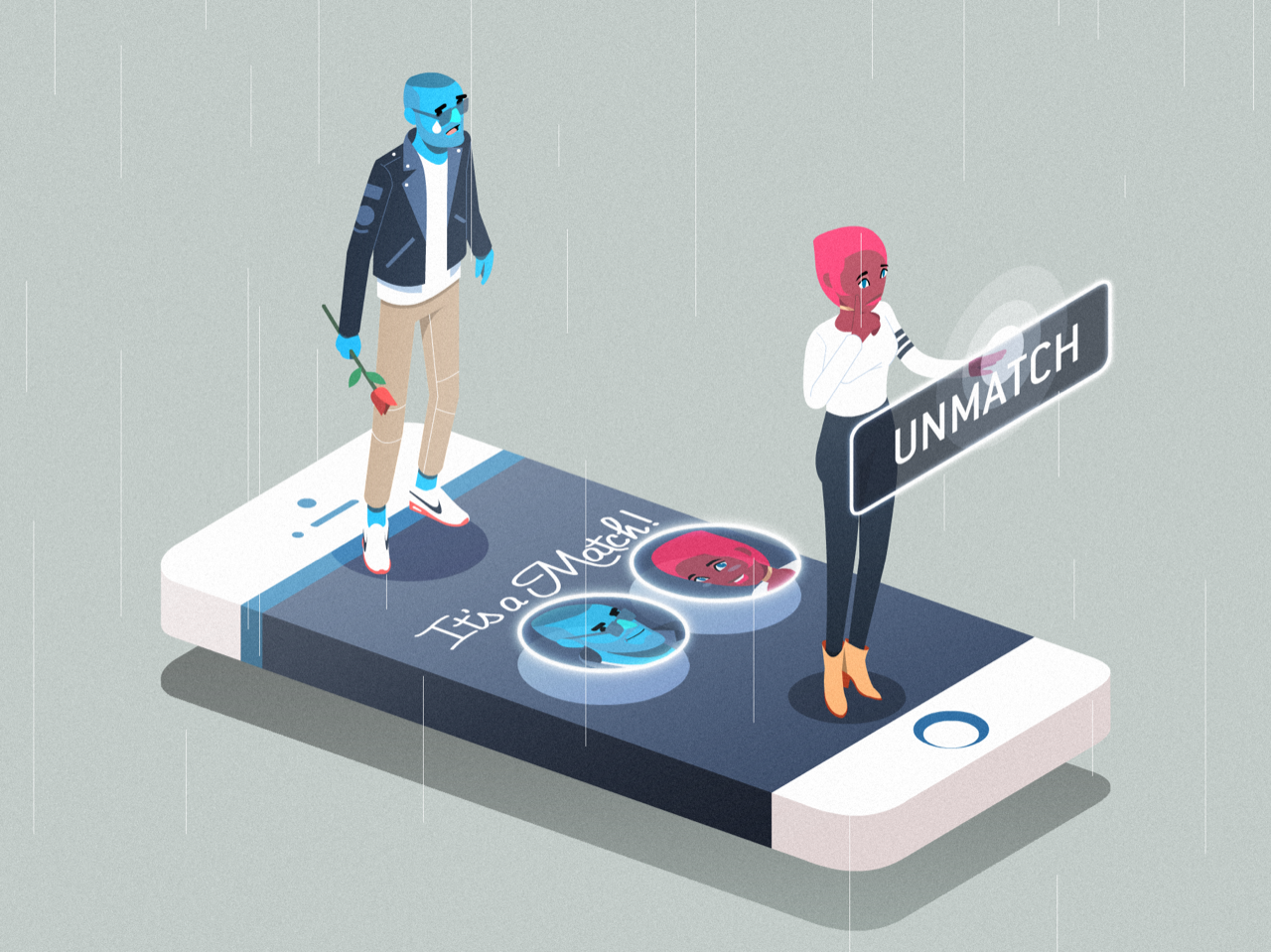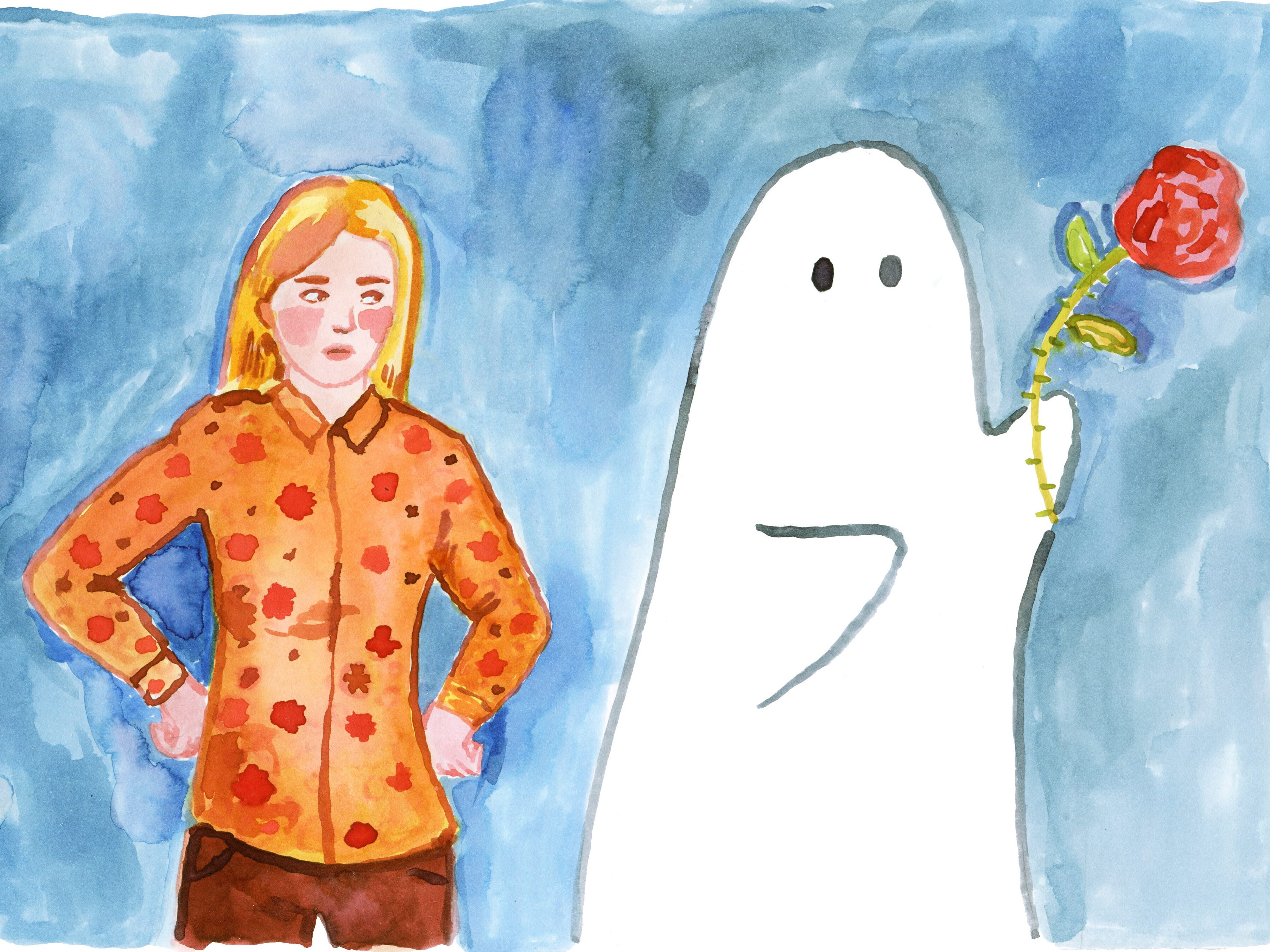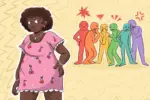In the past decade, dating apps have become a mainstay of the modern dating scene, as they allow for an ease of access previously unavailable to the single portion of the population. Whether you’re on Tinder, Hinge, Grindr, Bumble or any other number of swipe-right applications, all you have to do is make a profile of yourself that you feel highlights all of your best attributes, match with people who seem like they would be a good fit and then message back and forth before eventually meeting up and going on a date. It’s easy, convenient and, for a lot of people, the beginning of their love story.
However, there is a catch: While modern dating culture has made meeting people simple and eligible bachelor/bachelorettes accessible, it has also created an infamous new trend.
“Ghosting,” or the act of abruptly ending conversation with a potential romantic interest, has become an integral, albeit reviled component of the dating app experience. For instance, say you match with someone on Tinder (or whichever dating app you use) and you’ve been messaging for a few days now. The conversation has been so good that you scheduled a date for the upcoming Friday, and you’re really excited. You really like them, and they seem to really like you. Then, all of a sudden, as you’re messaging them to clarify the specifics of your rendezvous, they just stop responding. You continue to ask if your date is still on, when to meet up, etc., but they never reply back to you. Without warning, they leave you hanging on a limb and never bother to explain why they stopped talking to you, why they bailed on your date or what went wrong.
If you don’t like someone, or for whatever reason decide you don’t want to continue talking to them, you just … stop. With no warning, explanation, or apology. While rude, the tactic has become a trend because of its convenience. It’s a terrible way to treat someone, even if you don’t know them well, but its efficacy is hard to argue with. As a result, while dating apps remain popular, users understand that they will, at some point, likely be ghosted themselves. However, once you’ve been on the receiving end of a string of unreturned messages, the insensitivity of ghosting becomes painfully apparent.
A number of apps have attempted to curb this issue in the past, though none have been wholly successful. Hinge installed a “Your turn” notification in the attempt to reduce sudden silences, and Bumble, notoriously, expires its matches after a specific number of quiet hours. And while their attempts have reduced ghosting to a degree, none have eliminated it entirely.
Until now, says Badoo.
Badoo is an online dating app, similar to those mentioned previously, that allows users to make online profiles of themselves and match with people they are interested in. However, Badoo differs from other apps in a significant way: The application’s creators recognize all the negative aspects of ghosting, and are just tired of it as its users are. Badoo is one app giving a real effort to put an end to the counterproductive dating tactic.

In a recent newsletter, Badoo advertised their latest feature that aims to end ghosting. The new feature will prompt users to send messages to people they stopped messaging randomly by giving them possible options to reply. They explain in their newsletter: “If a user has not replied to someone after 3 days, Badoo will notify the user and provide reply suggestions such as, ‘Hey, sorry for the late reply. When are you free to meet?’. Or for those who are no longer interested in their match, they can simply choose to close the chat or use one of the polite responses, ‘Hey I think you’re great, but I don’t see us as a match. Take care!’.”
This is an incredibly big step; it forces the person who has been tempted to take the easy way out to come face-to-face with their actions and offers help in being conscious of how they are ending a conversation. There’s nothing wrong with deciding that someone isn’t a good fit for you, or that maybe you weren’t ready to date after all, but there is a right way to explain that to someone that avoids the mind-bending consequences of being left with no closure.
Bottom line: ghosting is hurtful, and one of the greatest downsides to modern dating culture. When someone ghosts, it often leads the recipient down a dangerous road of overthinking; they may wonder what they did wrong or why you didn’t like them, and that experience can scar a person enough to turn them away from online dating for good.
However, it’s important to note that ghosting didn’t stem from a hurtful place; most often, someone is likely ghosting because it’s simpler than having to figure out how to explain to someone that they’re too busy, they met someone else or just don’t feel a connection. Badoo recognizes that, and wants the online dating experience to be as positive as possible; encouraging people to put themselves out there and be open to the successes and failures of dating. Take notes from Claire Scott, one of Badoo’s “in-house dating expert and psychologists” as she explained, “For anyone who finds themselves being ghosted, don’t assume that they stopped talking to you because you did something wrong. It’s a by-product of online dating rather than a reflection of you as a person.”
While Badoo’s new feature is an encouraging and necessary feature for a dating app, many are skeptical as to whether the simple gesture is going to actually put an end to the modern dating culture phenomenon. The Huffington Post UK has expressed this concern in their Oct. 25 article, “This Dating App Has Launched An Anti-Ghosting Feature, But We Have Questions” by investigating whether a small feature in a dating app could reverse such a “bad dating habit.” Some major points they bring up are the facts that the feature won’t guarantee a response, and that oftentimes the reason for ghosting goes beyond not knowing how to tell someone you don’t want to talk to them anymore.
The Huffington Post makes a valid point: There is no way to guarantee Badoo’s new feature will work. But maybe is all must start with recognition. If someone decides to ghost a match, maybe it won’t matter if they are provided with a suggested response. It’s possible some people out there are simply jerks, or maybe their reasons far exceed that which can fit within the confines of “we’re just not a good match.”
Perhaps at the end of the day, it’s easier to just forget about someone, instead of giving them the explanation they deserve. But, Badoo is still making moves to overcome this bad millennial dating trend, and that’s where it starts. There is likely no universal feature that is powerful enough to reverse bad habits, but for those who do decide to use dating apps, you can trust that Badoo is putting forth genuine efforts to make their dating space as welcome and encouraging as possible.
The most recent Badoo newsletter has said that the new feature will be tested at the end of 2018, and launched at the start of 2019. So get your selfies ready, and let’s get this Badoo.
















